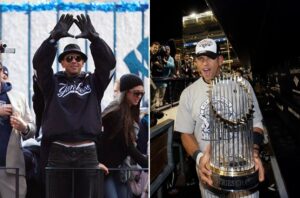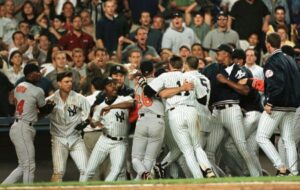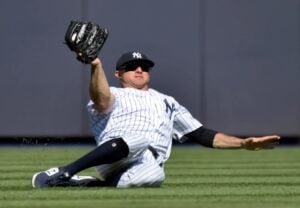Bernie Williams: The Yankees center-field maestro
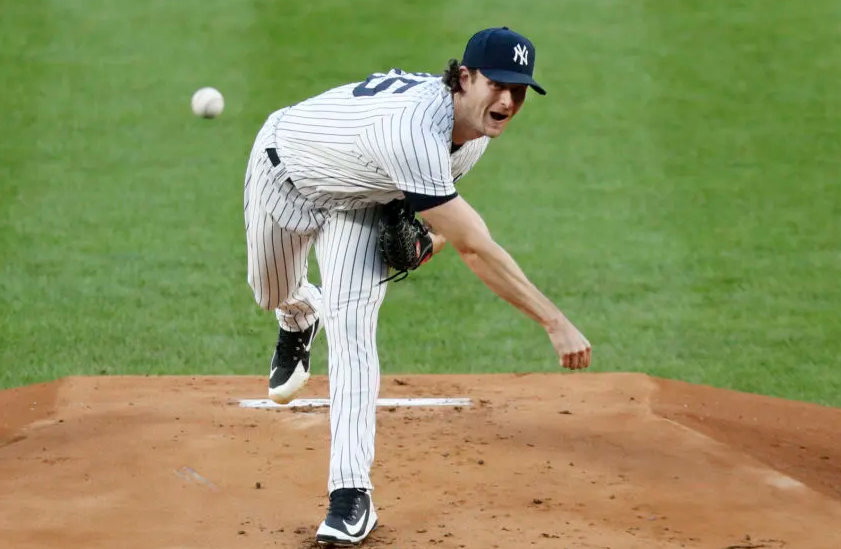
Michael Bennington
More Stories By Michael Bennington
- Mother’s Day: How Anthony Volpe’s mom molded him into a Yankee phenom
- Yankees’ Oswaldo Cabrera admits mistake in ninth-inning pitch clock violation: ‘It’s my fault’
- Boone confirms Anthony Rizzo’s likely Sunday activation for Yankees
- Yankees 5-6 Cardinals: Stanton’s near Grand Slam falls short as St. Louis earn first-ever win at new Yankee Stadium
- Wait by ex-Yankees player for Topps Card face change nears five decades
- December 20, 2023
- 3:07 am
- No Comments
Table of Contents
| Position | Centerfielder |
| Active years | 1991 – 2006 |
| Teams (years) | New York Yankees (1991–2006) |
| Draft | September 13, 1985 |
| Debut | July 7, 1991 New York Yankees vs. Baltimore Orioles |
| Last game | October 1, 2006, New York Yankees vs. Toronto Blue Jays |
| Date of Birth | September 13, 1968 |
| Native place | San Juan, Puerto Rico |
| Batted | Both |
| Threw | Right |
| All-Star | 5× All-Star (1997–2001) |
| World Champions | 4× World Series champion (1996, 1998–2000) |
| AL MVP | ALCS MVP (1996) |
| Shirt retired | New York Yankees No. 51 retired |
| MLB Awards | 4× Gold Glove Award (1997–2000) |
| Silver Slugger Award (2002) | |
| AL batting champion (1998) | |
| Legacy | Monument Park honoree |
| Nickname | Bambi |
Bernie Williams, a center fielder for the New York Yankees from 1991 to 2006, emerged as a fitting successor to the legacy of Joe DiMaggio and Mickey Mantle. Over his impressive 16-season career, Williams contributed significantly to four World Series championship victories with the Yankees. His remarkable statistics include a .297 batting average, 287 home runs, 1,257 runs batted in (RBI), 1,366 runs scored, 449 doubles, and an outstanding .990 fielding percentage.
Recognized for his excellence, Bernie Williams garnered five All-Star selections, four Gold Glove Awards, a Silver Slugger Award, the American League (AL) batting title in 1998, and the 1996 AL Championship Series Most Valuable Player Award. Known for his unwavering performance and postseason heroics, he remains an adored figure among Yankees fans. In recognition of his contributions, the team retired his uniform number 51 and unveiled a plaque in his honor in Monument Park in May 2015. Bernie Williams is widely celebrated as one of the premier switch-hitting center fielders in the annals of baseball history.
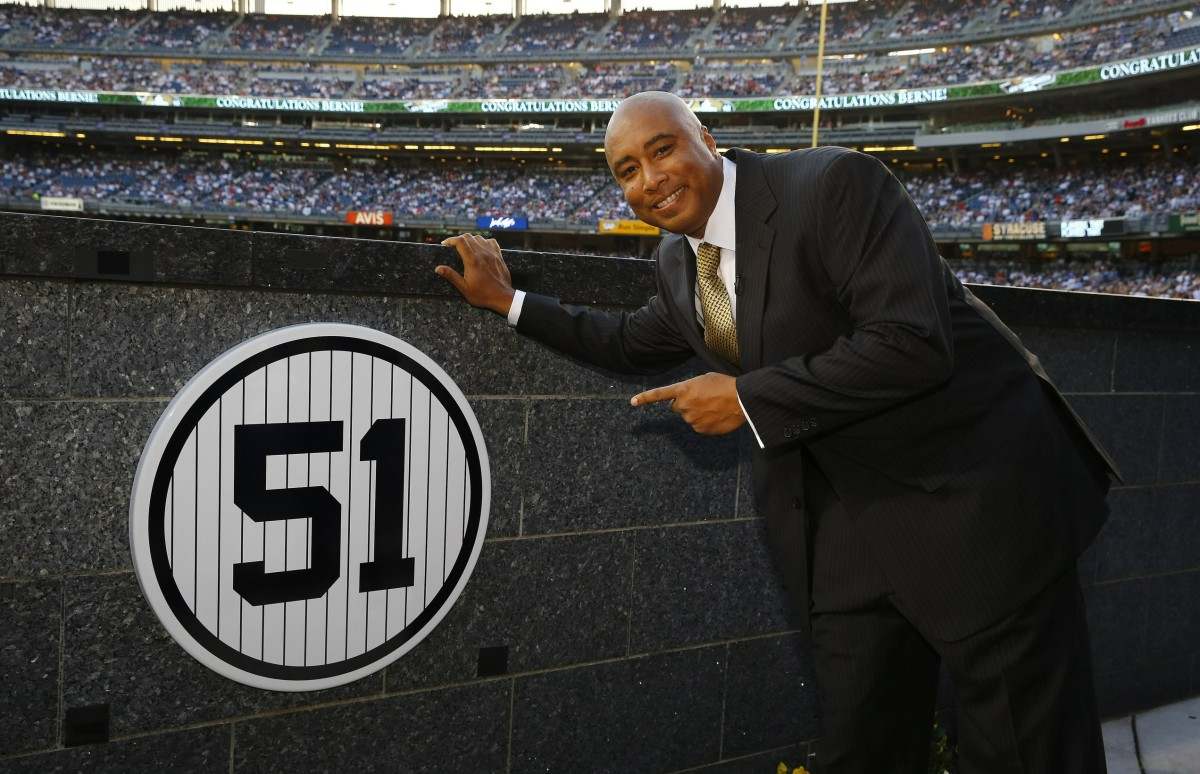
Early life and career
Bernabe Williams Figueroa Jr., born on September 13, 1968, in San Juan, Puerto Rico, to a merchant seaman and a teacher, initially lived in the Bronx before settling in Vega Alta, Puerto Rico. During his youth, Bernie Williams participated in Little League and Babe Ruth League baseball, competing against future major leaguers Ivan Rodriguez and Juan Gonzalez. At age 15, he achieved success in the 1984 Central American and Caribbean Junior Championships in Athletics, showcasing his prowess as one of the world’s fastest 400-meter runners in his age group.
Growing into a 6-foot-2, 205-pound athlete, Bernie Williams caught the attention of New York Yankees scout Roberto Rivera at the age of 16. He signed with the team after attending a baseball training camp in Connecticut on his 17th birthday in 1985.
In 1986, Bernie Williams embarked on his first minor-league season with the Gulf Coast League Yankees, hitting .270 with 2 home runs and 25 RBIs in 61 games, earning a spot on the league’s All-Star team. The 1987 season saw him split time between Fort Lauderdale and Oneonta, showcasing improvement in his performance. In 1988, despite winning the batting title with a .335 average, Bernie Williams suffered a wrist fracture that ended his season.
Entering the Yankees‘ spring training in 1989 as a highly touted prospect, Bernie Williams experienced ups and downs, moving between Columbus Clippers and Albany-Colonie Yankees. He married Waleska Ortega on February 23, 1990. Throughout the 1990 season, he played for Albany-Colonie, earning recognition as an Eastern League and Baseball America Double-A All-Star. Under the guidance of manager Buck Showalter, he began switch-hitting, batting from the left side for the first time.
Bernie Williams spent the entire 1990 season at Albany-Colonie, showcasing his skills with a .281 average, 8 home runs, 54 RBIs, 98 walks, and 39 stolen bases. His prospect status rose as he gained accolades, including being named an Eastern League All-Star and the second-best Eastern League prospect by Baseball America. During this time, he adopted switch-hitting, a practice suggested by manager Buck Showalter.
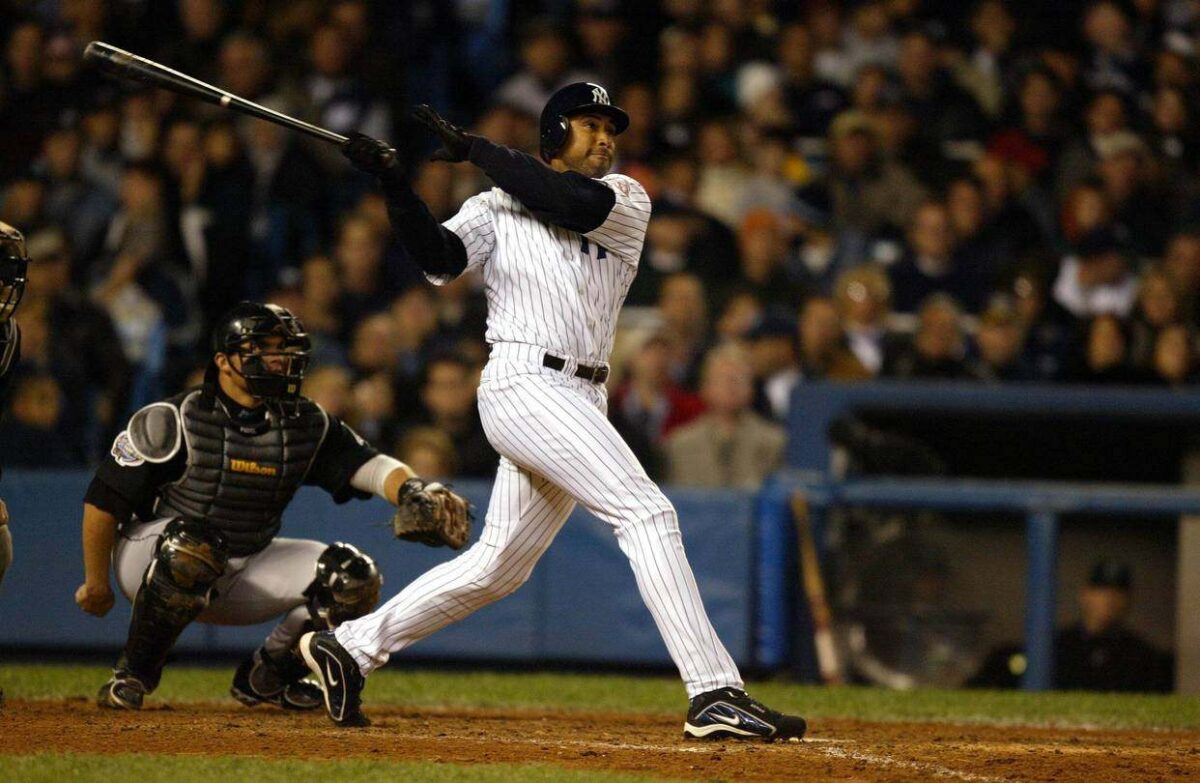
As a rookie, Bernie Williams, like many before him, experienced hazing from veteran peers, notably from Mel Hall, a fellow Yankee outfielder.
MLB debut of Bernie Williams
On July 7, 1991, Bernie Williams made his debut in the majors against the Orioles, filling in for the injured Roberto Kelly during the second half of the season. He posted a .238 batting average in 320 at-bats. Initially demoted to the minors, the player returned to the Yankees’ lineup when Danny Tartabull suffered an injury, showcasing strong performances.
The 1992 season saw Bernie Williams spending time with the Columbus Clippers and the Yankees. Despite an initial stint in the Bronx, he was sent back to the Clippers after two games. Excelling in Triple-A, he ranked fourth in slugging percentage, fifth in on-base percentage, and fifth in the batting race. Playing in 95 games, he achieved a .306 batting average and tied for the league lead with nine triples. Bernie Williams received accolades as the Yankees’ minor-league player of the month in June and earned spots on the International League midseason and postseason All-Star teams. Upon his return to the Bronx on July 31, he played in 60 games, hitting .281 with 5 home runs and 26 RBIs. Bernie Williams showcased versatility, playing in left and right field before settling in center field on August 7. He played every game and inning for the rest of the season, also serving as the Yankees’ leadoff hitter. Notable highlights from 1992 included a 10-game hitting streak and a four-hit game on September 12.
In 1993, Bernie Williams became the Yankees’ regular starting center fielder for the entire season. Despite a slow start, he overcame trade pressure from owner George Steinbrenner and general manager Gene Michael. Playing in 139 games, a rib cage strain sidelined him for 23 games. He maintained a .268 batting average with 12 home runs and 68 RBIs. Bernie Williams served as the team’s leadoff hitter until the All-Star break, transitioning to the sixth spot thereafter. Notable moments included his first grand slam on June 14 against the Boston Red Sox’s Danny Darwin and a 21-game hitting streak from August 1 to August 23.
The subsequent season in 1994 saw his batting average improve to .289, accompanied by 12 home runs and 57 RBIs in 108 games. While returning to the leadoff spot for 28 games with a .362 batting average, he also batted in various positions. Despite a challenging April with a .178 average, Bernie Williams had standout performances, including hitting homers in three consecutive games and achieving a two-homer game on June 6 against the Texas Rangers, where he drove in seven runs. This accomplishment made him the fifth Yankee to homer from both sides of the plate in the same game, joining the ranks of Mickey Mantle, Roy White, Tom Tresh, and Roy Smalley.
In 1995, Bernie Williams solidified his status as an elite MLB player, participating in 144 games and achieving a .307 batting average with 18 home runs and 82 RBIs. Although the Yankees faced disappointment in the American League Division Series against the Seattle Mariners, Bernie Williams made an impressive postseason debut, batting .429 with two homers and five RBIs in five games.
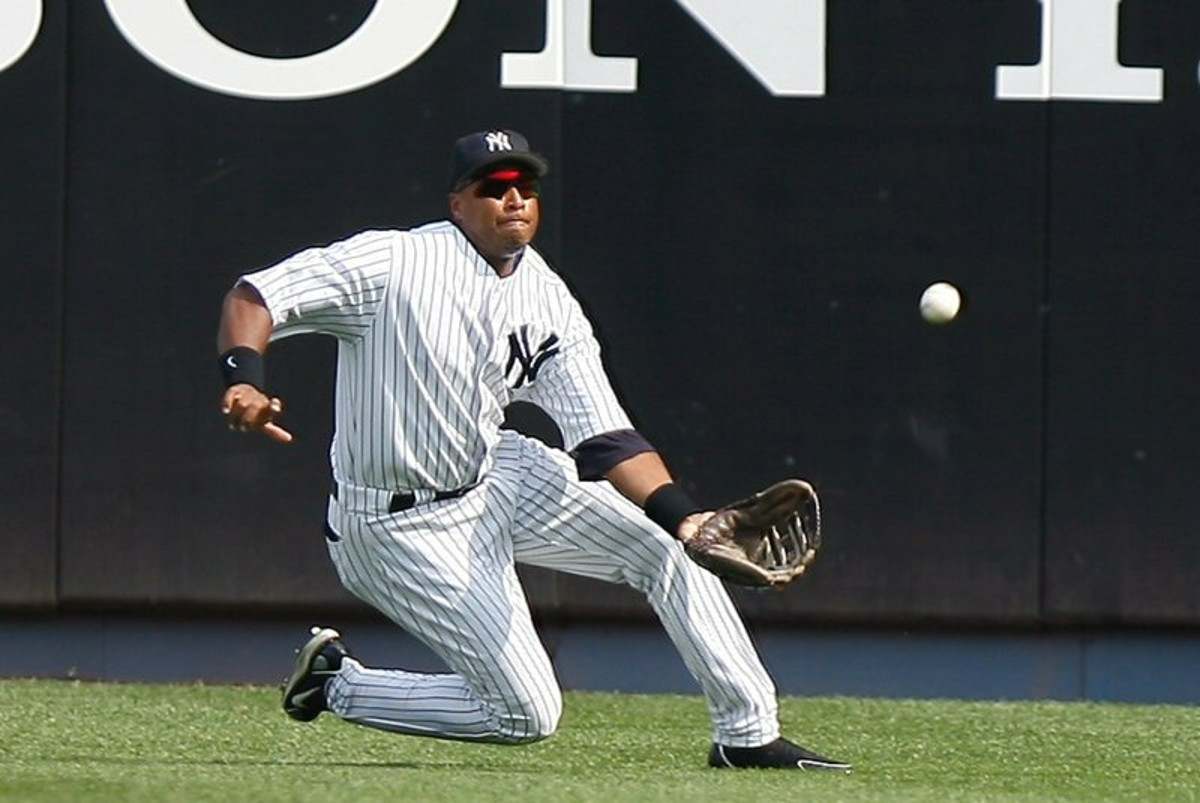
Despite his stellar performance, Bernie Williams was dissatisfied with the team’s contract renewal, offering a meager $400,000. Heading into arbitration for the next season, he requested $3 million, while the team countered with $2.555 million. The arbitration awarded him $2.6 million.
His exceptional years
In 1996, Bernie Williams showcased his exceptional skills by playing in 143 games, achieving a .305 batting average, and reaching career highs with 29 home runs and 102 RBIs. Notable highlights included three two-home-run games and an outstanding performance with eight RBIs in a 12-3 victory against the Detroit Tigers on September 12. During the playoffs, he maintained an impressive .471 batting average with 5 home runs and 11 RBIs in the ALDS and ALCS. While he earned the ALCS MVP title, his performance in the World Series was less stellar, hitting .167 with a single home run and four RBIs. Nevertheless, his crucial eighth-inning home run in Game Three contributed to the Yankees’ first world championship since 1978.
Entering his major-league prime in 1997, Bernie Williams solidified his status as an elite player for the Yankees. In 129 games, he posted a .328 batting average with 21 home runs and 100 RBIs, earning his inaugural Gold Glove award.
The Yankees’ decision not to trade Bernie Williams proved fortuitous in 1998, as he became the American League batting champion. Playing in 128 games, he achieved a .339 batting average with 26 home runs and 97 RBIs. The player excelled throughout the season, earning Player of the Month in May and finishing second in on-base percentage (.422). Additionally, he secured another Gold Glove, a spot on the All-Star squad, and a seventh-year, $87.5 million contract with an eighth-season $15 million club option on November 25. His exceptional achievements marked a historic season, being the first player ever to win the batting title, a Gold Glove, and a world championship in the same year.
Bernie Williams delivered his best performance in 1999, hitting .342 in 158 games — ranking third in the AL batting race. He recorded 25 home runs, 115 RBIs, and achieved career highs with 202 hits, 116 runs, and 100 walks. His seven four-hit games led the majors, demonstrating his prowess as a feared hitter. In the postseason, he maintained a .273 batting average with two home runs and eight RBIs. Bernie Williams’ elite status as a Yankee was further solidified by joining the ranks of Lou Gehrig, Babe Ruth, Joe DiMaggio, and Mickey Mantle as one of the only Bronx Bombers to drive in at least 100 RBIs and score at least 100 runs in three separate seasons. His partnership with Derek Jeter marked the first time the Yankees accomplished at least 200 hits in the same season since Gehrig and DiMaggio in 1937, despite missing 23 games due to a rib cage muscle problem.
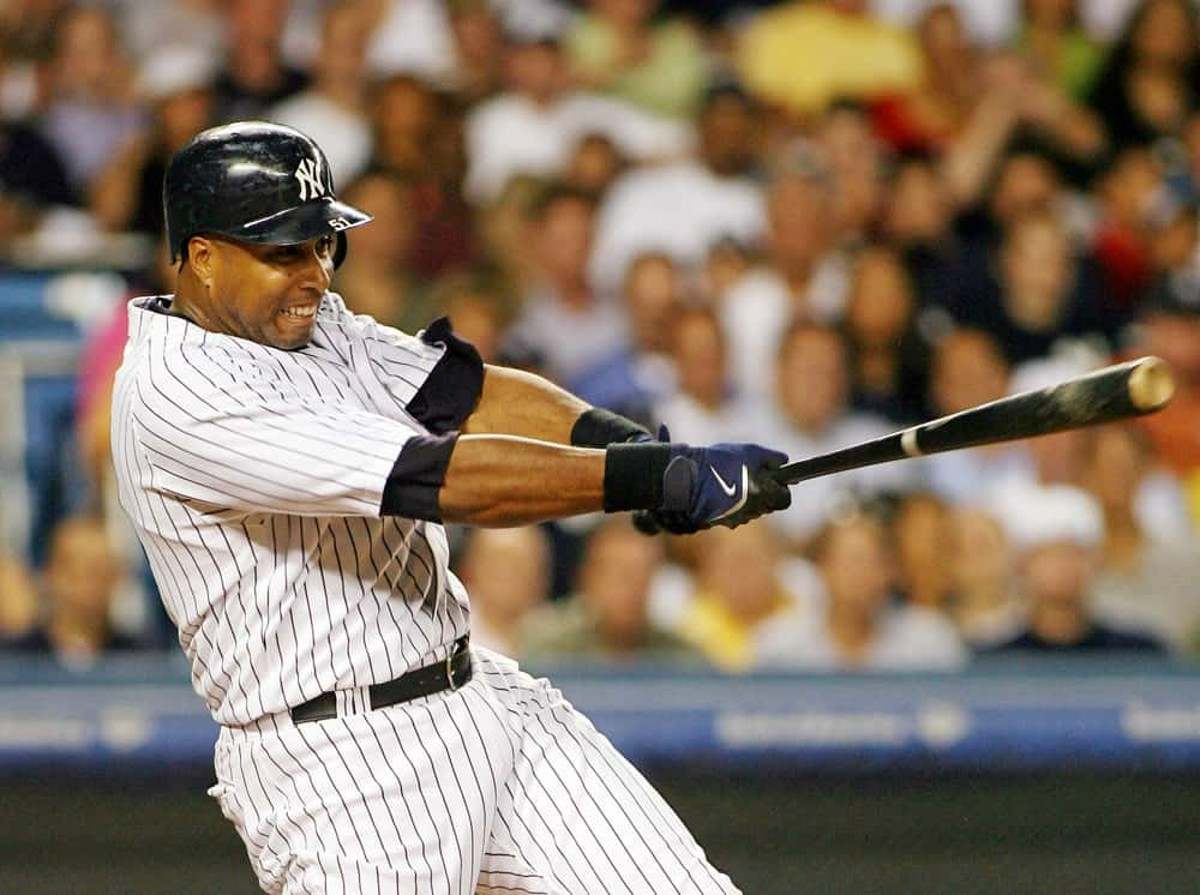
In 2000, Bernie Williams continued his impressive performance by hitting .307 in 141 games, achieving career highs with 30 home runs and 121 RBIs. Notably, he received the most All-Star Game votes among American League outfielders. Memorable moments from the season included a standout game on April 23, going 3-for-4 with two homers (one lefty and one righty) and five RBIs, as well as a remarkable performance on June 17, going 4-for-4 with seven RBIs.
The following year, in 2001, Bernie Williams maintained his excellence, participating in 146 games and hitting .307 with 26 home runs and 94 RBIs. He reached a career-high 38 doubles and earned his fifth consecutive All-Star selection. On June 2, he collected his 1,500th career hit. Despite a .220 batting average in the postseason, Bernie Williams led the Yankees with 11 RBIs and became the first player to hit homers in three consecutive ALCS games. However, the season was marked by a personal low when he missed games in April and mid-May to be with his father, who was battling pulmonary fibrosis and ultimately passed away.
In 2002, Bernie Williams played in 154 games, finishing third in the AL batting race with a .333 average. He hit 19 home runs and drove in 102 runs, marking the end of his era as a .300 hitter. His batting average dipped to .263 in 2003, appearing in 119 games with 15 home runs and 64 RBIs. Despite facing challenges such as a knee injury requiring surgery in May, Bernie Williams continued to climb the Yankees’ career stat lists, ranking eighth in total hits, seventh in homers, ninth in RBIs, and fifth in doubles.
Later years and retirement
The 2004 season saw Bernie Williams hitting .262 in 148 games with 22 home runs and 70 RBIs. His health issues persisted, preventing him from joining the team in Japan due to appendicitis. Nevertheless, he achieved significant milestones, reaching the 2,000-hit plateau, hitting his 250th career home run, and surpassing Joe DiMaggio for fourth place on the Yankees’ all-time doubles list with 390. Additionally, he set a record for grand slams, hitting his 10th, and enjoyed a solid postseason with a .296 batting average, 3 home runs, and 13 RBIs.
In 2005, the last year of his eight-year contract, Bernie Bernie Williams experienced a decline in his batting average to .249. Despite this, he played in 141 games, hitting 12 home runs and driving in 64 runs. In a game against Baltimore on September 27, he became the 10th Yankee to wear pinstripes for 15 seasons, surpassing DiMaggio’s hit total with his 2,215th, securing fourth place on the team’s all-time list. Despite the Yankees initially opting not to pick up Bernie Williams’ option for the next season and choosing a $3.5 million buyout in August, Brian Cashman, the team’s general manager, re-signed him to a one-season, $1.5 million contract in December 2005. In 2006, he played in 131 games, hitting .281 with 12 home runs and 61 RBIs. On July 26, his career hit total reached 2,300, and on August 16, his 443rd double ranked him second on the team’s all-time list.
Expressing a desire to return in 2007, Bernie Williams was open to being a backup outfielder and occasional pinch-hitter. However, he was offered only a minor-league contract with an opportunity to compete for a roster spot during spring training, an offer he declined. Although unwilling to sign with another major-league team for 2007, the 38-year-old ballplayer did not officially retire. In the following year, he played for Gigantes de Carolina in the Puerto Rico Baseball League, hoping to secure a spot on the team representing his country in the 2009 World Baseball Classic. Although Bernie Williams participated in the Yankees’ 2009 spring-training camp, anticipating a role in the Classic and a potential return to the Bronx Bombers, his major-league career had effectively concluded.
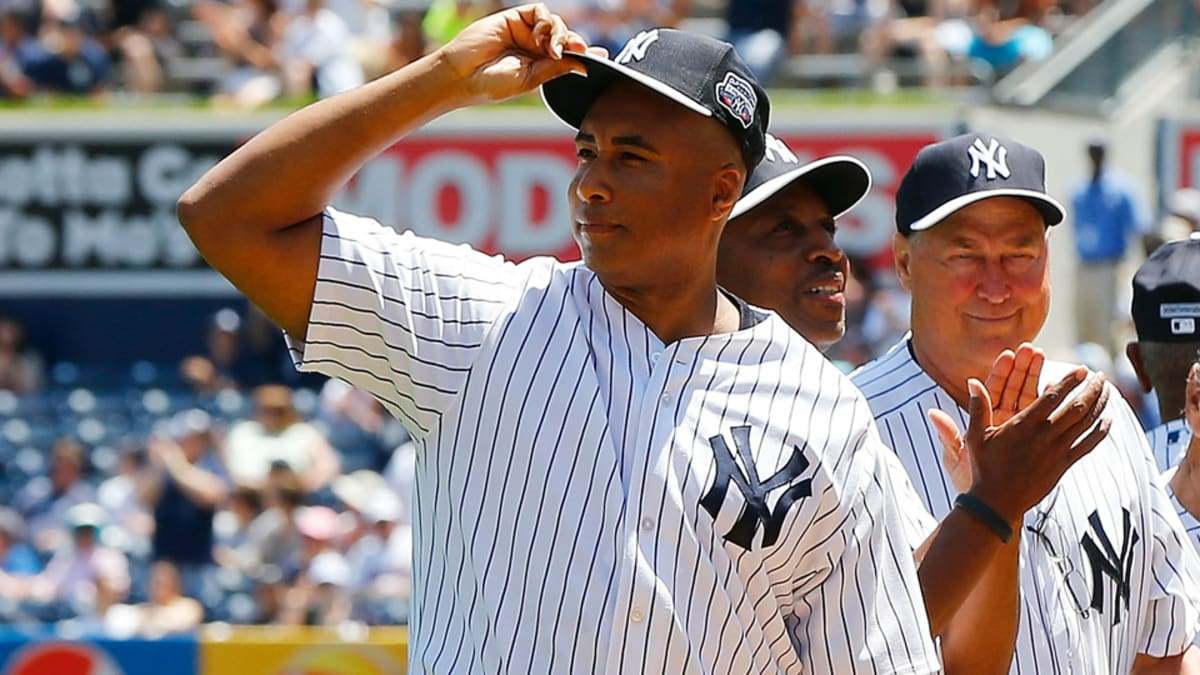
Despite not appearing in an MLB game after 2006, Bernie Williams did not formally retire until 2015. During the retirement press conference for Andy Pettitte in February 2011, he acknowledged the end of his career and indicated that he would officially announce his retirement soon thereafter. The legend officially retired on April 24, 2015, with the Yankees. In a poignant moment, he received a 102-second standing ovation upon his return to Yankee Stadium on September 21, 2008, a testament to his status as an all-time-great Yankee.
The legacy
Throughout his illustrious career, Bernie Williams showcased his talent in 2,076 games, amassing 2,336 hits in 7,869 at-bats, including 449 doubles, 55 triples, and 287 home runs. His remarkable contributions extended beyond individual achievements, with 1,257 runs driven in and 1,366 runs scored. Maintaining a stellar lifetime batting average of .297, the Yankees legend left an indelible mark on the baseball landscape.
His postseason prowess was evident from 1995 to 2006, participating in every postseason during that period. Over 121 total postseason games, he made 465 plate appearances, securing 128 hits, 29 doubles, and 22 home runs. Bernie Williams played a pivotal role in driving in 80 runs and scoring 83, boasting a postseason batting average of .275. His remarkable number of game appearances, along with leading in home runs and RBIs, etched his name in MLB history.
Consistently recognized for his excellence, Bernie Williams earned a spot on every American League All-Star team from 1997 to 2001. His defensive prowess was acknowledged with four Gold Gloves in 1997, 1998, 1999, and 2000, while his offensive skills earned him the American League Silver Slugger award in 2002. Demonstrating his consistency at the plate, he ranked second in the American League in on-base percentage in 1998 (.422) and fourth in 1999 (.435). Additionally, Bernie Williams secured the third spot in on-base plus slugging in 1998 (.997), highlighting his well-rounded offensive capabilities.
Bernie Williams’ legacy is further embellished by his integral role in four Yankees world championships (1996, 1998, 1999, and 2000). His impact on the field solidified him as a baseball icon, celebrated for both his individual achievements and contributions to team success.
Standing on Yankee all-time lists as:
- 3rd all-time in doubles
- 5th all-time in walks
- 5th all-time in hits
- 6th all-time in extra-base hits
- 7th all-time in home runs
- 7th all-time in RBIs
In 2012, Bernie Williams made his debut on the Hall of Fame ballot, securing 55 votes, equivalent to 9.6 percent of the balloting. Unfortunately, this number dwindled to 19 in 2013, resulting in a total of 3.3 percent that removed him from consideration for Cooperstown. However, in a notable turn of events, the Yankees announced in May 2014 that Bernie Williams would be bestowed with a plaque in the revered Monument Park at the Stadium. Subsequently, on February 16, 2015, the team declared the retirement of his number 51, with both honors culminating in a ceremony on May 24.
While Bernie Williams was undeniably immersed in baseball, his journey led him to become a celebrated guitarist over time. Drawing inspiration from a diverse array of musical styles, including jazz, classical, pop, Brazilian, and Latin, he honed his skills in both acoustic and electric guitar. In 2003, he unveiled his debut album, “The Journey Within,” which showcased influences from jazz, rock, tropical music, and more. Additionally, in 2014, Williams took center stage at Fenway Park, playing “Take Me Out to the Ball Game” in a pregame ceremony before Derek Jeter’s final appearance in the big leagues.
Beyond his musical pursuits, Bernie Williams has been actively engaged in charitable endeavors, particularly through his association with Little Kids Rock. This organization places a strong emphasis on advocating for music education for underprivileged youth, reflecting Bernie Williams’ commitment to making a positive impact beyond the realms of baseball and music.
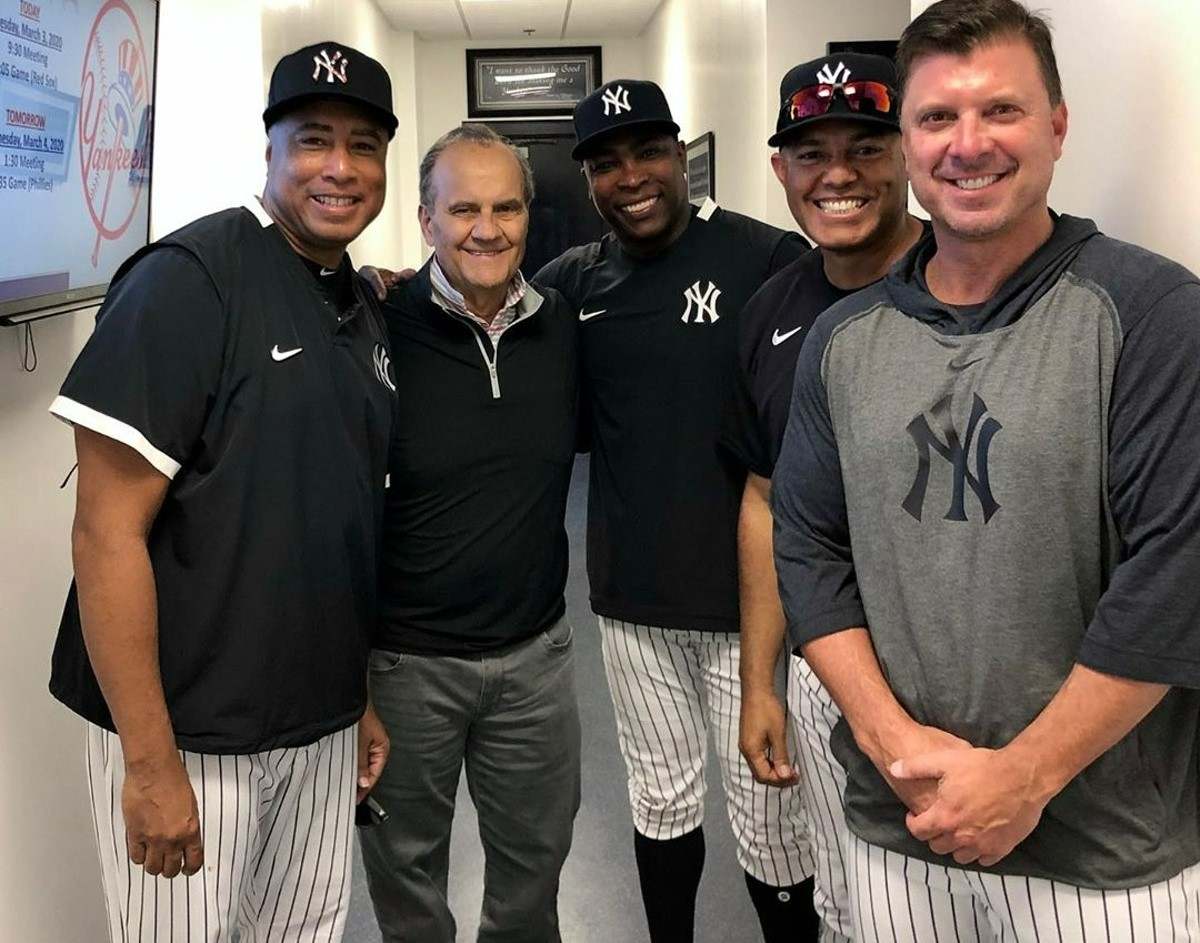
Bernie Williams’ greatest moments
- 5-time AL All-Star (1997-2001)
- 1996 ALCS MVP
- 4-time AL Gold Glove Winner (1997-2000)
- AL Silver Slugger Award Winner (2002)
- AL Batting Average Leader (1998)
- 20-Home Run Seasons: 7 (1996-2001 & 2004)
- 30-Home Run Seasons: 1 (2000)
- 100 RBI Seasons: 5 (1996, 1997, 1999, 2000 & 2002)
- 100 Runs Scored Seasons: 8 (1996-2002 & 2004)
- 200 Hits Seasons: 2 (1999 & 2002)
- Won four World Series with the New York Yankees (1996, 1998, 1999 & 2000)
How old is Bernie Williams?
55 years as of 2023
Where does Bernie Williams live now?
San Juan
Who is Bernie Williams’ wife?
Waleska Williams
How much is a Bernie Williams baseball card worth?
$2.99 to $184.99
Why Bernie Williams is not part of the core four?
The idea of it simply didn’t exist until after he was gone.
Who is Bernie Williams?
Bernie Williams is a Puerto Rican former professional baseball player and musician.
Where was Bernie Williams born?
San Juan, Puerto Rico
What was Bernie Williams’ Yankees eyesight?
During the offseason, Bernie Williams had laser surgery to correct eyesight problems that forced him to wear contact lenses
When did the Yankees retire Bernie Williams’ number?
May 24, 2015
What is the nationality of Bernie Williams?
American
How many years did Bernie Williams play for the Yankees?
16-year
How much is a Topps baseball card Bernie Williams worth?
1990 Topps #701 Bernie Williams by Topps from 1990 with a value of approx. $0.59
How good is Bernie Williams at the guitar?
Williams is a talented guitar player and has an inventive sense for creating sophisticated arrangements in his music.
What made Bernie Williams a Renaissance man?
From his musical talent as a Grammy-nominated jazz guitarist to his philanthropic endeavors, Williams is a true Renaissance man.
How many gold gloves did Bernie Williams win?
4 Gold Glove awards
How much is a Bernie Williams 1996 card worth?
$99.00
How much is a signed Bernie Williams baseball worth?
Approximately $199.99
When did Bernie Williams retire?
2006
What team did Bernie Williams play for?
New York Yankees
Why did Bernie Williams deserve to have his number retired?
Bernie Williams was a great Yankee who spent 16 years in pinstripes and helped the team win four World Series.
Where is Bernie Williams now? Baseball or guitar?
Williams pursued a career as a jazz musician after retiring from MLB. Now he’s making wine.
Who played center field for the Yankees after Bernie Williams?
Ben Chapman
When was Bernie Williams drafted?
September 13, 1985
Bernie Williams What instrument?
Guitarist
What kind of guitar does Bernie Williams play?
Reverend Jetstream HB
What teams did Bernie Williams play for in Puerto Ricco?
Gigantes de Carolina
How many home runs did Bernie Williams hit?
287
How much money is my Bernie Williams Topps 701?
Average Price- $40.33, Most Recent Price- $104.69
How much is Bernie Williams worth?
$60 million
At What age did Bernie Williams stop playing for the Yankees?
38
What size bat did Bernie Williams use?
35 inches
When was Bernie Williams’ first game?
May, 1991
When did Bernie Williams start playing guitar?
Bernie Williams began playing guitar at age 8 in Puerto
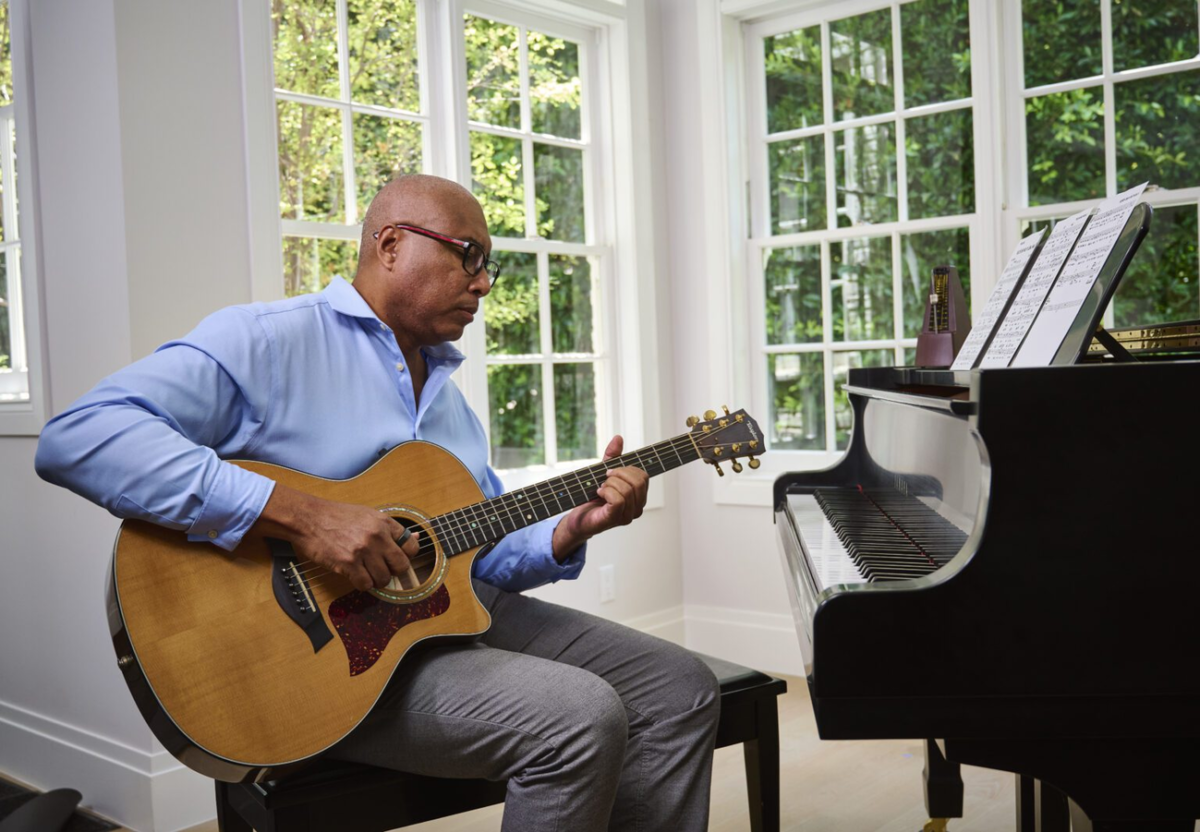
The Stats
| SUMMARY | WAR | AB | H | HR | BA | R | RBI | SB | OBP | SLG | OPS | OPS+ |
| Career | 49.6 | 7869 | 2336 | 287 | .297 | 1366 | 1257 | 147 | .381 | .477 | .858 | 125 |
Bernie Williams’ Standard Batting record
| Year | Age | Tm | Lg | G | PA | AB | R | H | 2B | 3B | HR | RBI | SB | CS | BB | SO | BA | OBP | SLG | OPS | OPS+ | TB | GDP | HBP | SH | SF | IBB |
| 1991 | 22 | NYY | AL | 85 | 374 | 320 | 43 | 76 | 19 | 4 | 3 | 34 | 10 | 5 | 48 | 57 | 0.238 | 0.336 | 0.35 | 0.686 | 91 | 112 | 4 | 1 | 2 | 3 | 0 |
| 1992 | 23 | NYY | AL | 62 | 293 | 261 | 39 | 73 | 14 | 2 | 5 | 26 | 7 | 6 | 29 | 36 | 0.28 | 0.354 | 0.406 | 0.76 | 114 | 106 | 5 | 1 | 2 | 0 | 1 |
| 1993 | 24 | NYY | AL | 139 | 628 | 567 | 67 | 152 | 31 | 4 | 12 | 68 | 9 | 9 | 53 | 106 | 0.268 | 0.333 | 0.4 | 0.734 | 100 | 227 | 17 | 4 | 1 | 3 | 4 |
| 1994 | 25 | NYY | AL | 108 | 475 | 408 | 80 | 118 | 29 | 1 | 12 | 57 | 16 | 9 | 61 | 54 | 0.289 | 0.384 | 0.453 | 0.837 | 120 | 185 | 11 | 3 | 1 | 2 | 2 |
| 1995 | 26 | NYY | AL | 144 | 648 | 563 | 93 | 173 | 29 | 9 | 18 | 82 | 8 | 6 | 75 | 98 | 0.307 | 0.392 | 0.487 | 0.878 | 129 | 274 | 12 | 5 | 2 | 3 | 1 |
| 1996 | 27 | NYY | AL | 143 | 641 | 551 | 108 | 168 | 26 | 7 | 29 | 102 | 17 | 4 | 82 | 72 | 0.305 | 0.391 | 0.535 | 0.926 | 131 | 295 | 15 | 0 | 1 | 7 | 8 |
| 1997 | 28 | NYY | AL | 129 | 591 | 509 | 107 | 167 | 35 | 6 | 21 | 100 | 15 | 8 | 73 | 80 | 0.328 | 0.408 | 0.544 | 0.952 | 147 | 277 | 10 | 1 | 0 | 8 | 7 |
| 1998 | 29 | NYY | AL | 128 | 578 | 499 | 101 | 169 | 30 | 5 | 26 | 97 | 15 | 9 | 74 | 81 | 0.339 | 0.422 | 0.575 | 0.997 | 160 | 287 | 19 | 1 | 0 | 4 | 9 |
| 1999 | 30 | NYY | AL | 158 | 697 | 591 | 116 | 202 | 28 | 6 | 25 | 115 | 9 | 10 | 100 | 95 | 0.342 | 0.435 | 0.536 | 0.971 | 149 | 317 | 11 | 1 | 0 | 5 | 17 |
| 2000 | 31 | NYY | AL | 141 | 616 | 537 | 108 | 165 | 37 | 6 | 30 | 121 | 13 | 5 | 71 | 84 | 0.307 | 0.391 | 0.566 | 0.957 | 140 | 304 | 15 | 5 | 0 | 3 | 11 |
| 2001 | 32 | NYY | AL | 146 | 633 | 540 | 102 | 166 | 38 | 0 | 26 | 94 | 11 | 5 | 78 | 67 | 0.307 | 0.395 | 0.522 | 0.917 | 139 | 282 | 15 | 6 | 0 | 9 | 11 |
| 2002 | 33 | NYY | AL | 154 | 699 | 612 | 102 | 204 | 37 | 2 | 19 | 102 | 8 | 4 | 83 | 97 | 0.333 | 0.415 | 0.493 | 0.908 | 141 | 302 | 19 | 3 | 0 | 1 | 7 |
| 2003 | 34 | NYY | AL | 119 | 521 | 445 | 77 | 117 | 19 | 1 | 15 | 64 | 5 | 0 | 71 | 61 | 0.263 | 0.367 | 0.411 | 0.778 | 107 | 183 | 21 | 3 | 0 | 2 | 8 |
| 2004 | 35 | NYY | AL | 148 | 651 | 561 | 105 | 147 | 29 | 1 | 22 | 70 | 1 | 5 | 85 | 96 | 0.262 | 0.36 | 0.435 | 0.795 | 108 | 244 | 19 | 2 | 1 | 2 | 5 |
| 2005 | 36 | NYY | AL | 141 | 546 | 485 | 53 | 121 | 19 | 1 | 12 | 64 | 1 | 2 | 53 | 75 | 0.249 | 0.321 | 0.367 | 0.688 | 85 | 178 | 16 | 1 | 1 | 6 | 1 |
| 2006 | 37 | NYY | AL | 131 | 462 | 420 | 65 | 118 | 29 | 0 | 12 | 61 | 2 | 0 | 33 | 53 | 0.281 | 0.332 | 0.436 | 0.768 | 96 | 183 | 14 | 2 | 1 | 6 | 5 |
| 16 Yrs | 2076 | 9053 | 7869 | 1366 | 2336 | 449 | 55 | 287 | 1257 | 147 | 87 | 1069 | 1212 | 0.297 | 0.381 | 0.477 | 0.858 | 125 | 3756 | 223 | 39 | 12 | 64 | 97 | |||
| 162 Game Avg. | 162 | 706 | 614 | 107 | 182 | 35 | 4 | 22 | 98 | 11 | 7 | 83 | 95 | 0.297 | 0.381 | 0.477 | 0.858 | 125 | 293 | 17 | 3 | 1 | 5 | 8 |
Bernie Williams’ Postseason Batting
| Year | G | PA | AB | R | H | 2B | 3B | HR | RBI | SB | CS | BB | SO | BA | OBP | SLG | OPS | TB | GDP | HBP | SH | SF | IBB | WPA | cWPA |
| 1995 | 5 | 28 | 21 | 8 | 9 | 2 | 0 | 2 | 5 | 1 | 0 | 7 | 3 | 0.429 | 0.571 | 0.81 | 1.381 | 17 | 0 | 0 | 0 | 0 | 1 | 0.12 | 0.20% |
| 1996 | 4 | 18 | 15 | 5 | 7 | 0 | 0 | 3 | 5 | 1 | 1 | 2 | 1 | 0.467 | 0.5 | 1.067 | 1.567 | 16 | 0 | 0 | 0 | 1 | 0 | 0.38 | 4.60% |
| 1996 MVP | 5 | 24 | 19 | 6 | 9 | 3 | 0 | 2 | 6 | 1 | 0 | 5 | 4 | 0.474 | 0.583 | 0.947 | 1.531 | 18 | 0 | 0 | 0 | 0 | 1 | 1.1 | 17.50% |
| 1996 | 6 | 27 | 24 | 3 | 4 | 0 | 0 | 1 | 4 | 1 | 0 | 3 | 6 | 0.167 | 0.259 | 0.292 | 0.551 | 7 | 1 | 0 | 0 | 0 | 1 | 0.05 | -0.70% |
| 1997 | 5 | 22 | 17 | 3 | 2 | 1 | 0 | 0 | 1 | 0 | 0 | 4 | 3 | 0.118 | 0.318 | 0.176 | 0.495 | 3 | 1 | 1 | 0 | 0 | 0 | -0.32 | -5.40% |
| 1998 | 3 | 12 | 11 | 0 | 0 | 0 | 0 | 0 | 0 | 0 | 0 | 1 | 4 | 0 | 0.083 | 0 | 0.083 | 0 | 2 | 0 | 0 | 0 | 0 | -0.21 | -1.70% |
| 1998 | 6 | 28 | 21 | 4 | 8 | 1 | 0 | 0 | 5 | 1 | 1 | 7 | 4 | 0.381 | 0.536 | 0.429 | 0.964 | 9 | 1 | 0 | 0 | 0 | 0 | 0.24 | 5.60% |
| 1998 | 4 | 18 | 16 | 2 | 1 | 0 | 0 | 1 | 3 | 0 | 0 | 2 | 5 | 0.063 | 0.167 | 0.25 | 0.417 | 4 | 0 | 0 | 0 | 0 | 1 | -0.28 | -6.70% |
| 1999 | 3 | 13 | 11 | 2 | 4 | 1 | 0 | 1 | 6 | 0 | 0 | 1 | 2 | 0.364 | 0.462 | 0.727 | 1.189 | 8 | 0 | 1 | 0 | 0 | 0 | 0.11 | 0.90% |
| 1999 | 5 | 22 | 20 | 3 | 5 | 1 | 0 | 1 | 2 | 1 | 0 | 2 | 5 | 0.25 | 0.318 | 0.45 | 0.768 | 9 | 0 | 0 | 0 | 0 | 0 | 0.3 | 5.10% |
| 1999 | 4 | 17 | 13 | 2 | 3 | 0 | 0 | 0 | 0 | 1 | 0 | 4 | 2 | 0.231 | 0.412 | 0.231 | 0.643 | 3 | 1 | 0 | 0 | 0 | 3 | -0.13 | -3.00% |
| 2000 | 5 | 22 | 20 | 3 | 5 | 3 | 0 | 0 | 1 | 0 | 1 | 1 | 4 | 0.25 | 0.273 | 0.4 | 0.673 | 8 | 0 | 0 | 0 | 1 | 0 | -0.09 | -2.10% |
| 2000 | 6 | 27 | 23 | 5 | 10 | 1 | 0 | 1 | 3 | 1 | 0 | 2 | 3 | 0.435 | 0.481 | 0.609 | 1.09 | 14 | 1 | 1 | 0 | 1 | 1 | 0.17 | 3.60% |
| 2000 | 5 | 23 | 18 | 2 | 2 | 0 | 0 | 1 | 1 | 0 | 0 | 5 | 5 | 0.111 | 0.304 | 0.278 | 0.582 | 5 | 0 | 0 | 0 | 0 | 2 | -0.27 | -8.80% |
| 2001 | 5 | 21 | 18 | 4 | 4 | 3 | 0 | 0 | 5 | 0 | 1 | 3 | 3 | 0.222 | 0.333 | 0.389 | 0.722 | 7 | 2 | 0 | 0 | 0 | 0 | -0.07 | -1.30% |
| 2001 | 5 | 22 | 17 | 4 | 4 | 0 | 0 | 3 | 5 | 0 | 1 | 5 | 4 | 0.235 | 0.409 | 0.765 | 1.174 | 13 | 1 | 0 | 0 | 0 | 0 | 0.46 | 7.70% |
| 2001 | 7 | 28 | 24 | 2 | 5 | 1 | 0 | 0 | 1 | 0 | 0 | 4 | 6 | 0.208 | 0.321 | 0.25 | 0.571 | 6 | 0 | 0 | 0 | 0 | 0 | -0.08 | -8.40% |
| 2002 | 4 | 18 | 15 | 4 | 5 | 1 | 0 | 1 | 3 | 0 | 0 | 3 | 2 | 0.333 | 0.444 | 0.6 | 1.044 | 9 | 2 | 0 | 0 | 0 | 0 | 0.19 | 1.60% |
| 2003 | 4 | 18 | 15 | 3 | 6 | 2 | 0 | 0 | 3 | 0 | 0 | 2 | 2 | 0.4 | 0.444 | 0.533 | 0.978 | 8 | 0 | 0 | 0 | 1 | 1 | 0.17 | 2.60% |
| 2003 | 7 | 30 | 26 | 5 | 5 | 1 | 0 | 0 | 2 | 0 | 0 | 4 | 3 | 0.192 | 0.3 | 0.231 | 0.531 | 6 | 0 | 0 | 0 | 0 | 0 | -0.05 | -0.20% |
| 2003 | 6 | 28 | 25 | 5 | 10 | 2 | 0 | 2 | 5 | 0 | 0 | 2 | 2 | 0.4 | 0.429 | 0.72 | 1.149 | 18 | 1 | 0 | 0 | 1 | 0 | -0.13 | -8.00% |
| 2004 | 4 | 19 | 18 | 2 | 5 | 1 | 0 | 1 | 3 | 0 | 0 | 1 | 2 | 0.278 | 0.316 | 0.5 | 0.816 | 9 | 4 | 0 | 0 | 0 | 0 | -0.2 | -2.00% |
| 2004 | 7 | 36 | 36 | 4 | 11 | 3 | 0 | 2 | 10 | 0 | 0 | 0 | 5 | 0.306 | 0.306 | 0.556 | 0.861 | 20 | 0 | 0 | 0 | 0 | 0 | -0.31 | -2.10% |
| 2005 | 5 | 21 | 19 | 2 | 4 | 2 | 0 | 0 | 1 | 0 | 0 | 1 | 3 | 0.211 | 0.238 | 0.316 | 0.554 | 6 | 0 | 0 | 0 | 1 | 0 | -0.19 | -2.60% |
| 2006 | 1 | 3 | 3 | 0 | 0 | 0 | 0 | 0 | 0 | 0 | 0 | 0 | 2 | 0 | 0 | 0 | 0 | 0 | 0 | 0 | 0 | 0 | 0 | -0.09 | -1.00% |
| 12 Yrs (25 Series) | 121 | 545 | 465 | 83 | 128 | 29 | 0 | 22 | 80 | 8 | 5 | 71 | 85 | 0.275 | 0.371 | 0.48 | 0.85 | 223 | 17 | 3 | 0 | 6 | 11 | 0.88 | -4.50% |
| G | PA | AB | R | H | 2B | 3B | HR | RBI | SB | CS | BB | SO | BA | OBP | SLG | OPS | TB | GDP | HBP | SH | SF | IBB | WPA | cWPA | |
| 12 ALDS | 48 | 215 | 183 | 36 | 51 | 16 | 0 | 8 | 33 | 2 | 3 | 26 | 31 | 0.279 | 0.367 | 0.497 | 0.865 | 91 | 11 | 2 | 0 | 4 | 2 | -0.19 | -6.10% |
| 7 ALCS | 41 | 189 | 162 | 31 | 52 | 10 | 0 | 9 | 33 | 4 | 2 | 25 | 28 | 0.321 | 0.413 | 0.549 | 0.962 | 89 | 3 | 1 | 0 | 1 | 2 | 1.91 | 37.20% |
| 6 WS | 32 | 141 | 120 | 16 | 25 | 3 | 0 | 5 | 14 | 2 | 0 | 20 | 26 | 0.208 | 0.319 | 0.358 | 0.677 | 43 | 3 | 0 | 0 | 1 | 7 | -0.84 | -35.60% |
Bernie Williams’ Career Graph
| Hall of Fame | All-Star Games | Awards | MVP (rank, share) |
| 2012 BBWAA ( 9.6%) 2013 BBWAA ( 3.3%) | 1997 * 1998 1999 * 2000 (CF) 2001 * | 1996 AL ALCS MVP 1998 AL Batting Title | 1996 AL (17, 2%) 1997 AL (17, 4%) 1998 AL (7, 26%) 1999 AL (11, 5%) 2000 AL (13, 6%) 2002 AL (10, 8%) 0.51 Career Shares (488th) |
| Gold Gloves | Silver Sluggers | Monthly Awards | Weekly Awards |
| 1997 AL (OF) 1998 AL (OF) 1999 AL (OF) 2000 AL (OF) All multiple winners | 2002 AL (OF) | 1997 August AL Player of the Month 1998 May AL Player of the Month | 1997 Aug 31st AL Player of the Week 1998 May 31st AL Player of the Week 2001 Jun 10th AL Player of the Week 2002 Aug 18th AL Player of the Week |
| Wins Above Replacement | WAR Position Players | Offensive WAR | Defensive WAR |
| 1995 AL 6.4 (8th) | 1995 AL 6.4 (6th) 1997 AL 5.5 (8th) Career 49.6 (207th) | 1995 AL 5.2 (9th) 1997 AL 6.2 (3rd) 1998 AL 6.6 (5th) 1999 AL 6.9 (4th) 2001 AL 5.9 (9th) 2002 AL 6.7 (4th) Career 63.2 (82nd) | 1995 AL 1.7 (8th) |
| Batting Average | On-Base% | Slugging % | On-Base Plus Slugging |
| 1997 AL .328 (4th) 1998 AL .339 (1st) 1999 AL .342 (3rd) 2002 AL .333 (3rd) | 1997 AL .408 (7th) 1998 AL .422 (2nd) 1999 AL .435 (4th) 2001 AL .395 (9th) 2002 AL .415 (5th) Career .381 (173rd) | 1997 AL .544 (10th) 1998 AL .575 (10th) Career .477 (234th) | 1997 AL .952 (8th) 1998 AL .997 (3rd) 1999 AL .971 (9th) 2002 AL .908 (9th) Career .858 (155th) |
| Games Played | At Bats | Plate Appearances | Runs Scored |
| 1995 AL 144 (3rd) 1999 AL 158 (8th) Career 2,076 (207th) | 1995 AL 563 (5th) Career 7,869 (168th) | 1995 AL 648 (4th) 1999 AL 697 (9th) 2002 AL 699 (9th) Career 9,053 (157th) | 1997 AL 107 (8th) 1999 AL 116 (7th) 2000 AL 108 (10th) Career 1,366 (103rd) |
| Hits | Doubles | Triples | Runs Batted In |
| 1995 AL 173 (7th) 1999 AL 202 (3rd) 2002 AL 204 (3rd) Career 2,336 (143rd) | 1994 AL 29 (10th) 2001 AL 38 (10th) Career 449 (110th) | 1995 AL 9 (4th) 1996 AL 7 (7th) 1997 AL 6 (10th) 2000 AL 6 (8th) | 2000 AL 121 (9th) Career 1,257 (135th) |
| Bases on Balls | Singles | Adjusted OPS+ | Runs Created |
| 1999 AL 100 (5th) 2002 AL 83 (10th) 2004 AL 85 (7th) Career 1,069 (97th) | 1995 AL 117 (6th) 1999 AL 143 (5th) 2002 AL 146 (3rd) Career 1,545 (190th) | 1997 AL 147 (7th) 1998 AL 160 (2nd) 1999 AL 149 (8th) 2000 AL 140 (9th) 2002 AL 141 (9th) | 1995 AL 109 (10th) 1999 AL 140 (5th) 2002 AL 125 (8th) Career 1,445 (102nd) |
| Adj. Batting Runs | Adj. Batting Wins | Times On Base | Offensive Win % |
| 1997 AL 38 (9th) 1998 AL 47 (4th) 1999 AL 48 (5th) 2002 AL 39 (8th) Career 313 (130th) | 1997 AL 3.5 (9th) 1998 AL 4.2 (4th) 1999 AL 4.3 (5th) 2002 AL 3.7 (8th) Career 28.5 (151st) | 1995 AL 253 (5th) 1999 AL 303 (2nd) 2002 AL 290 (2nd) Career 3,444 (111th) | 1997 AL .711 (7th) 1998 AL .717 (7th) 1999 AL .718 (8th) 2002 AL .694 (9th) |
| Sacrifice Flies | Intentional Bases on Balls | Double Plays Grounded Into | Caught Stealing |
| 2001 AL 9 (6th) Career 64 (202nd) | 1998 AL 9 (6th) 1999 AL 17 (1st) 2000 AL 11 (5th) 2001 AL 11 (7th) Career 97 (155th) | 1998 AL 19 (5th) 2002 AL 19 (4th) 2003 AL 21 (4th) 2004 AL 19 (9th) Career 223 (68th) | 1994 AL 9 (7th) 1999 AL 10 (8th) Career 87 (210th) |
| SB % | Power-Speed # | Base-Out Runs Added (RE24) | Win Probability Added (WPA) |
| 1996 AL 80.95 (7th) | 1996 AL 21.4 (4th) Career 194.4 (107th) | 1998 AL 42.03 (8th) 1999 AL 46.75 (9th) 2000 AL 44.72 (9th) 2002 AL 43.21 (5th) Career 271.15 (211th) | 1998 AL 4.5 (3rd) 2000 AL 3.7 (10th) 2002 AL 5.4 (3rd) Career 23.9 (209th) |
| Situ. Wins Added (WPA/LI) | Championship WPA (cWPA) | Base-Out Wins Added (REW) | Def. Games as CF (s.1901) |
| 1997 AL 3.4 (9th) 1998 AL 4.1 (7th) 1999 AL 3.8 (10th) 2001 AL 4.4 (5th) 2002 AL 3.5 (7th) Career 27.3 (167th) | 1995 AL 1.9 (9th) 1998 AL 1.5 (8th) 1999 AL 1.8 (9th) 2000 AL 3.0 (8th) 2001 AL 2.7 (6th) 2002 AL 3.4 (1st) | 1998 AL 3.9 (8th) 1999 AL 4.2 (10th) 2000 AL 4.0 (9th) 2002 AL 4.0 (6th) Career 24.6 (223rd) | 1994 AL 107 (4th) 1995 AL 144 (1st) 1996 AL 140 (4th) 1999 AL 155 (2nd) 2001 AL 144 (5th) 2002 AL 147 (5th) Career 1,856 (12th) |
| Putouts as CF (s.1901) | Assists as CF (s.1901) | Errors Committed as CF (s.1901) | Double Plays Turned as CF (s.1901) |
| 1994 AL 276 (3rd) 1995 AL 428 (1st) 1999 AL 381 (3rd) 2001 AL 348 (5th) Career 4,576 (15th) | 1994 AL 7 (4th) 1996 AL 10 (3rd) 1999 AL 9 (4th) | 1991 AL 5 (4th) 1995 AL 8 (1st) 1996 AL 5 (3rd) 1999 AL 5 (4th) 2002 AL 5 (3rd) Career 47 (95th) | 1994 AL 2 (3rd) 1996 AL 3 (3rd) 1999 AL 3 (2nd) 2004 AL 1 (5th) Career 17 (99th) |
| Def. Games as OF | Putouts as OF | Errors Committed as OF | Double Plays Turned as OF |
| 1995 AL 144 (1st) 1999 AL 155 (4th) Career 1,924 (62nd) | 1994 AL 277 (3rd) 1995 AL 432 (1st) 1999 AL 381 (4th) 2001 AL 348 (5th) Career 4,710 (37th) | 1995 AL 8 (1st) | 1996 AL 3 (5th) 1999 AL 3 (5th) |
| Total Zone Runs as CF (s.1953) | Range Factor/9Inn as CF (s.1948) | Range Factor/Game as CF (s.1901) | Fielding % as CF (s.1901) |
| 1995 AL 14 (2nd) 2006 AL 6 (5th) | 1995 AL 3.03 (3rd) Career 2.59 (99th) | 1991 AL 2.74 (5th) 1993 AL 2.67 (5th) 1994 AL 2.64 (4th) 1995 AL 2.98 (1st) Career 2.50 (93rd) | 1993 AL .989 (5th) 1994 AL .990 (4th) 1997 AL .993 (2nd) 1998 AL .990 (4th) 1999 AL .987 (5th) 2000 AL 1.000 (1st) 2001 AL .994 (3rd) 2003 AL .997 (2nd) 2005 AL .991 (5th) Career .990 (48th) |
| Total Zone Runs as OF (s.1953) | Range Factor/9Inn as OF | Range Factor/Game as OF | Fielding % as OF |
| 1995 AL 14 (3rd) | 1995 AL 3.06 (2nd) Career 2.58 (78th) | 1991 AL 2.74 (5th) 1995 AL 3.01 (1st) Career 2.48 (79th) | 1997 AL .993 (2nd) 2000 AL 1.000 (1st) 2001 AL .994 (4th) 2003 AL .997 (3rd) Career .990 (79th) |
| Salary | |||
| 1998 AL $8,300,000 (3rd) 1999 AL $9,857,143 (3rd) 2000 AL $12,357,143 (2nd) 2001 AL $12,357,143 (7th) 2002 AL $12,357,143 (7th) 2003 AL $12,357,143 (10th) |
Sources: SABR, Baseball-Reference
- Categories: bernie williams, Yankees legends
- Tags: bernie williams, Yankees legends


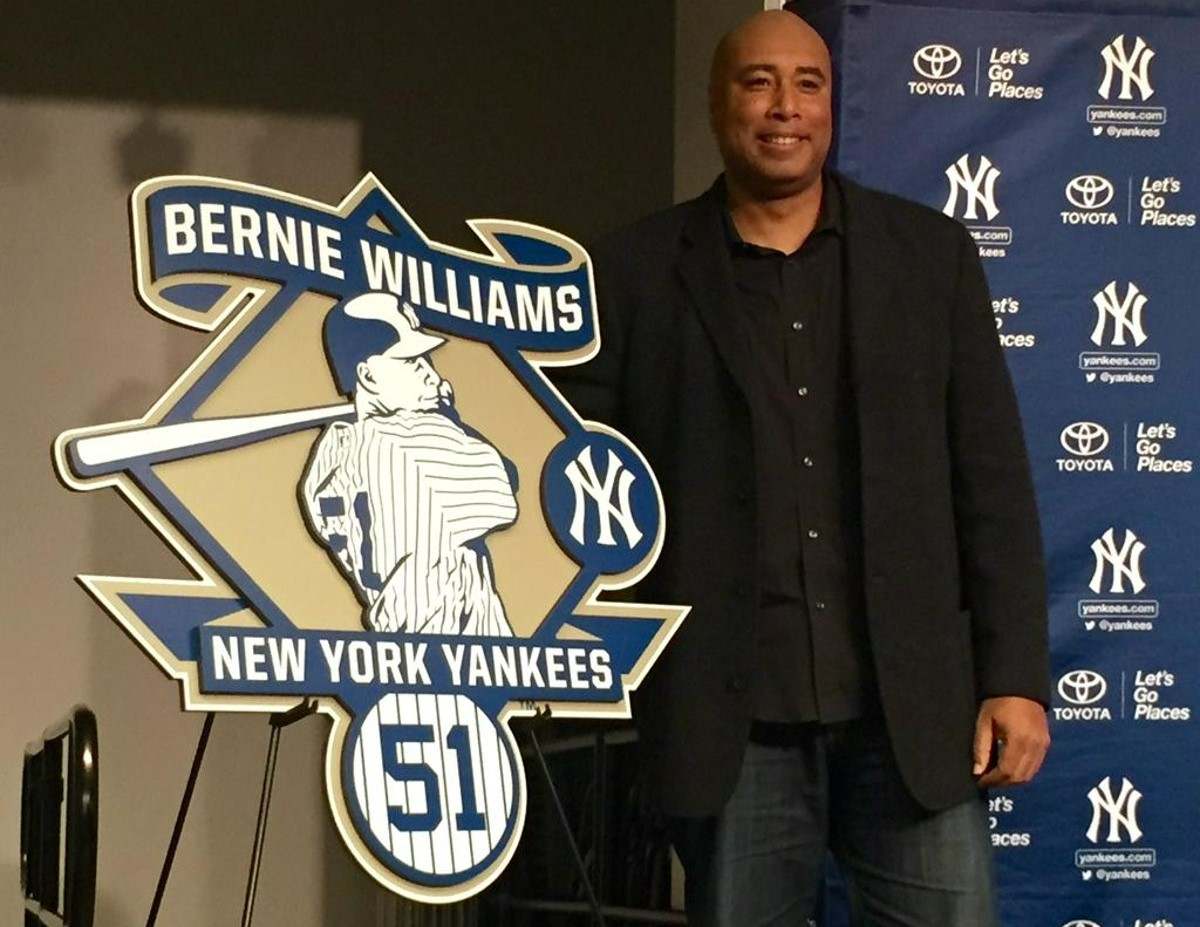
 Follow Us
Follow Us
